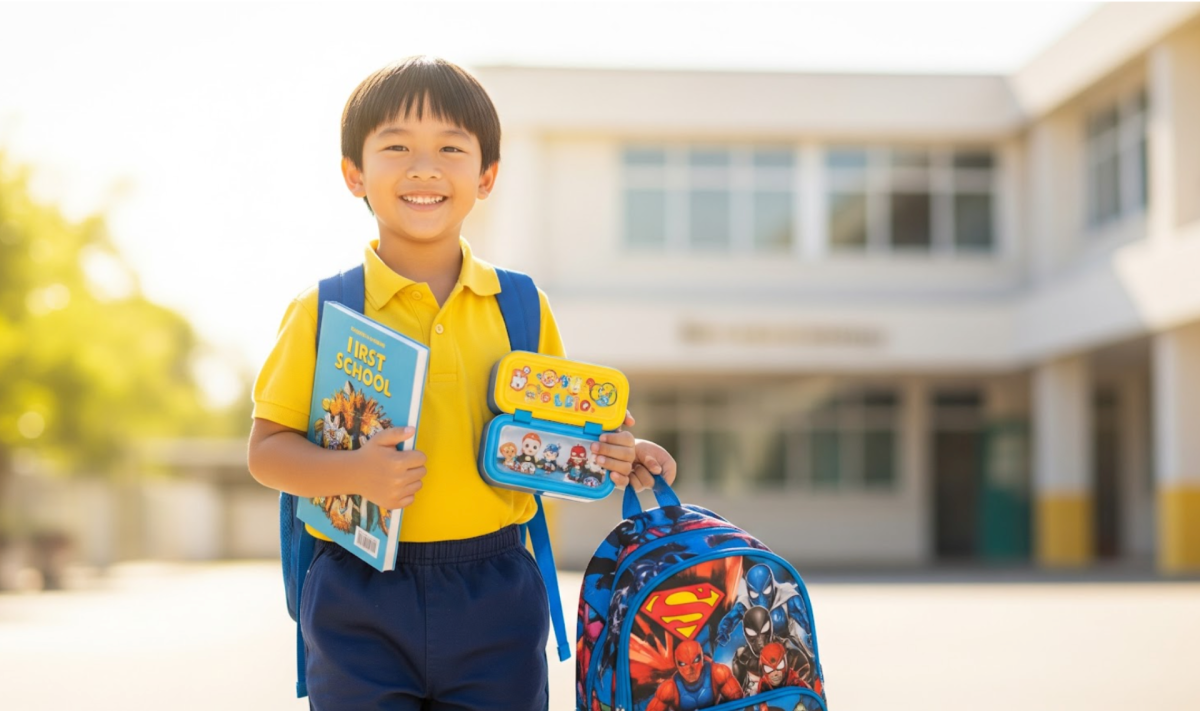How to Know If Your Special Needs Child Is Truly Ready for the School Year
Reno, United States - August 18, 2025 / Jesse Kalter Law /

The first day of school can set the tone for the entire academic year. For special needs students, it’s not just about new pencils and backpacks—it’s about making sure they have the skills, supports, and confidence to start strong. Special Education Resource has created a comprehensive special needs school readiness checklist to help families prepare. This guide ensures parents don’t overlook essential details that can make the difference between a smooth transition and a rocky start.
From academic skills to sensory supports, and from emotional readiness to practical routines, readiness is more than a supply list. Families who use a special needs tutor often discover that preparation is about building a solid foundation in all areas—not just academics—before the first bell rings.
1. Academic Readiness: Building a Strong Foundation Before Day One
Academic readiness isn’t just about grade-level performance. It’s about whether a student can meaningfully engage with classroom instruction and assignments. For special needs students, gaps in foundational skills—like reading comprehension, basic math, or written expression—can cause stress and setbacks early in the year.
Checklist Items for Academic Readiness:
Has your child maintained essential skills over the summer?
Are they able to complete grade-level assignments with minimal frustration?
Have they practiced any new or challenging skills that will appear this year?
If they have an IEP, are the goals still relevant and up-to-date?
Working with a tutor before the school year begins can help close gaps, refresh forgotten skills, and boost academic confidence. This preparation often helps children transition more smoothly into new classroom expectations.
2. Emotional and Social Readiness: Confidence in the Classroom and Beyond
A child may be academically capable but still struggle socially or emotionally in school. For many special needs students, this is as important as academics—sometimes even more so. Anxiety, low self-esteem, or difficulty with social cues can impact how a child learns and interacts.
Checklist Items for Emotional Readiness:
Does your child express anxiety about going to school?
Do they have at least one trusted adult at school they can go to for support?
Are they able to express needs or discomfort to an adult?
Do they have strategies for managing frustration or sensory overload?
Practicing role-play scenarios at home—like asking a teacher for help or navigating a group activity—can boost a child’s confidence before stepping into the classroom.
3. Sensory and Environmental Readiness: Creating Comfort in New Spaces
For students with sensory processing challenges, the classroom environment can be overwhelming. Bright lights, loud hallways, and unexpected transitions can trigger meltdowns or shutdowns. Preparing for these challenges before school starts can help minimize disruptions.
Checklist Items for Sensory Readiness:
Does your child have sensory tools (noise-canceling headphones, fidgets, weighted lap pads) they can use at school?
Have you identified and communicated sensory triggers to the teacher?
Is there a quiet space your child can access when feeling overwhelmed?
Have they practiced self-regulation techniques they can use independently?
Parents who plan sensory supports in advance and collaborate with school staff set their children up for greater success in managing the demands of the school day.
4. Practical Readiness: Routines That Support Independence
Daily routines can make or break a school morning. For special needs students, unpredictable mornings or rushed schedules can create stress that carries into the school day. Practicing and refining routines before the first day can help students feel more in control.
Checklist Items for Practical Readiness:
Does your child have a consistent bedtime and wake-up schedule?
Can they manage morning hygiene tasks with minimal prompting?
Are they comfortable packing and unpacking their own backpack?
Do they know their transportation plan and pick-up/drop-off procedures?
Consistency builds independence, and independence reduces morning stress for both students and parents.
5. IEP and School Communication Readiness: Advocacy from Day One
Even the best IEP won’t work if it’s not implemented properly. Families who begin the year with a clear communication plan often see better results in both services and accommodations.
Checklist Items for IEP Readiness:
Have you reviewed your child’s IEP for accuracy and relevance?
Do you know the names and contact information for key staff members?
Have you scheduled an early check-in with the teacher or case manager?
Are you ready with questions to ask if services aren’t being provided as outlined?
Good communication ensures small problems don’t become big obstacles. A proactive approach signals to the school that the family is engaged and committed to collaboration.
Why This Checklist Matters
When a special needs student starts the school year without the right supports, it can take months to recover from the academic and emotional fallout. This checklist helps families address every layer of readiness—academic, social, sensory, practical, and advocacy—before the first day, reducing stress and increasing confidence for both child and parent.
Special Education Resource’s approach goes beyond a one-size-fits-all model. By helping families prepare holistically, they empower students to step into school ready to learn, connect, and succeed.
About Special Education Resource
Special Education Resource has been redefining the way special needs education is delivered in the U.S. Founded by Luke and his wife after navigating their own children’s educational challenges, the company understands the stress and uncertainty families face when a child struggles to keep up in school. By identifying and targeting the root cause of learning delays, they help students catch up, build confidence, and thrive long-term. Their services span one-on-one and small-group special needs tutoring, academic intervention, and school advocacy, providing solutions that are as individualized as each child they support.

Contact Information:
Jesse Kalter Law
1150 Selmi Dr #505
Reno, NV 89512
United States
Jesse Kalter
https://www.jessekalterlaw.com/

